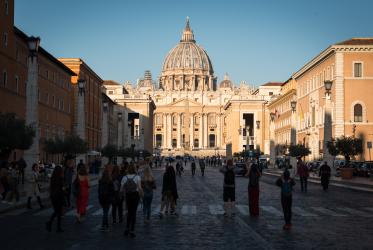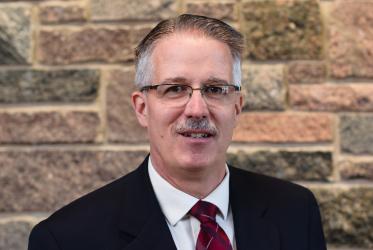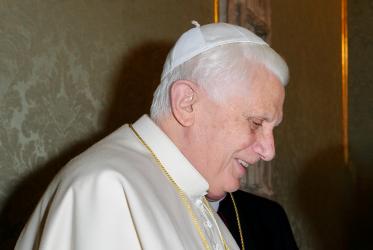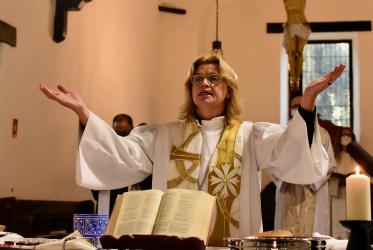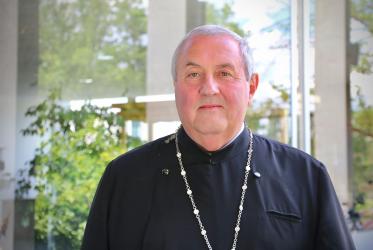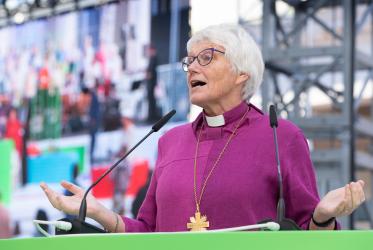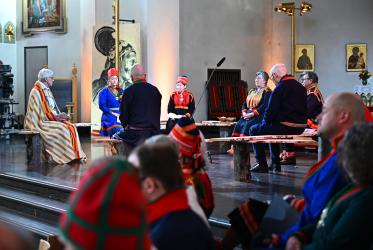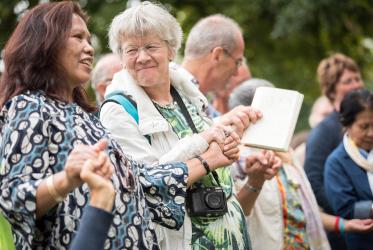Displaying 61 - 80 of 595
HIV and AIDS Civil Society Networks and the Faith Sector
Lessons Learnt from Strategic Engagement in India, Dominican Republic, Indonesia, and Jamaica
31 January 2023
The Ecumenical Legacy of Pope Benedict XVI
31 December 2022
Pope Emeritus Benedict XVI leaves a legacy of ecumenical dialogue
31 December 2022
In Chile, “Churches’ ministry of reconciliation is key”
29 November 2022
WCC commemorates life and witness of Prof. Richard Schneider
19 November 2022
Towards a Global Vision of the Church Volume I
Explorations on Global Christianity and Ecclesiology, Faith and Order Paper 234
14 November 2022
Church of Sweden apologizes to Sámi people, this time in Sápmi
27 October 2022
WCC acting general secretary visits Moscow
17 October 2022
Applications open for upcoming Young Adults Training for Religious Amity
15 September 2022
Seek Peace and Pursue It: PJP Series 4
Reflections on the Pilgrimage of Justice and Peace in Europe
22 August 2022


